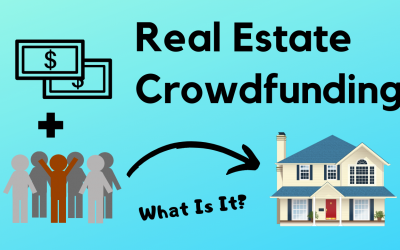Introducing Regulation Crowdfunding
May 16th, 2016 Regulation Crowdfunding became law and this allowed issueors to raise up to $1.07 million in capital for businesses and real estate development. This was a game changer with Reg CF having a break-out year in 2020 with people moving online in response to the COVID-19 Pandemic and government mandated lockdowns. According to Crowdfund Capital Advisors Reg CF commitments 2020 rose by 77.6% from $134.8 million in 2019 to $239.4 million in 2020. The average raise increased from $298,331 in 2019 to $308,978 in 2020. The number of investors participating in offerings jumped too. In 2020, there were over 150,000 investors, a 75% increase committing more than 358,000 investments versus the year prior. The number of offerings rose by 61.2% tallying 1149 in 2020 and the average valuation of issuers went from $11.4 million to $13 million with an offering success rate of 63.7%.
Regulation Crowdfunding Round Two
March 15th, 2021 new regulations went into effect allow issuers to raise up to $5 million in capital and accredited investors no longer capped at $107,000 and nonaccredited investors able to invest more based on their income and net worth. These changes 2021 changes coming on off a banner 2020 could spell as an enormous change in the early state private equity markets like never before seen. Reg CF allows issuers to get the best of both accredited and nonaccredited investment dollars. These changes could not have come at a better time for Black families that struggle to build wealth based on a lack of access to capital and lack of investment opportunities for low-wealth investors with the passing of the $1.9 trillion stimulus package that will put capital into the hands of the people that need it most.
2021 An Economic Perfect Strom For Nonaccredited Investors
The economic stimulus package that coincides with the updating of rules on Regulation Crowdfunding that allows issuers to raise up to $5 million in a 12 month period presents the perfect storm for nonaccredited investors. These two pieces of legislation are very important to the African-American community for the first time in history the African-Amerian community is able to build wealth through business and real estate private investment. The Stimulus Bill positions individuals making under $75,000 and married couples making under $150,000 to receive direct payments of $1,400 per person. The bill would also provide $1,400 per dependent. The payments would gradually decrease above those income levels and disappear entirely above an income cap: $80,000 for individuals and $160,000 for married couples.
The Affordable Housing Crisis and Reg CF
Regulation Crowdfunding could, potentially, help solve this problem through new reforms encouraging localized investment in affordable housing. Today’s crowdfunding rules under Regulation CF permit online crowdfunding from both nonaccredited and accredited Investors, without extensive public registration and typical disclosures that accompany initial public offerings. The Reg CF reforms could serve a useful role in encouraging locally-funded affordable housing production and when coupled with capital that could be put to work at the local level some of these chronic housing issues could be solved and allow wealth building through inclusive investment in local communities.
Real Estate Crowdfunding and Local Investors
Real estate crowdfunding is relatively new but gaining in popularity. Most non-accredited investors are only aware of real estate investment through direct investment when it comes to real estate—buying a property to do a fix and flip or long-term rental or investing in a specific project via private money loans. But most of us are limited in the number of projects we can invest in at any one time using this traditional direct real estate investment model. Real estate crowdfunding expands the reach of individual investors through low minimums, diversification, and increased deal flow that opens real estate investing to a much broader range of individuals.
Closing the Racial Wealth Gap And Addressing The Affordable Housing Crisis
The real estate crowdfunding solution will create multiple pathways for non-accredited investors to become passive real estate investors while increasing homeownership, creating increased affordable housing units, increasing neighborhood density and building wealth through short term real estate investing. Crowdfunding offers an amazing array of benefits for real estate investment and development. It makes fundraising a simple process, boosts branding, increases odds of institutional investment, garners more supporters and publicity, and can enable real estate investors to accomplish far more.
Expanding the Investor Base
Real estate crowdfunding allows regular (non-accredited) people to become real estate investors and they can specifically invest in projects that will increase the amount of affordable housing that comes online. You may not have the funds for a direct investment to fix and flip a new affordable housing project on your own, but with real estate crowdfunding, you can be one of several investors who help get the project off the ground. Real estate crowdfunding, unlike direct investment, which requires purchasing, owning, and managing the property (and all the headaches that come with it), crowdfunding is a totally passive investment that has multiple due diligence steps to protect investors so they can put their investment dollars to work without the stress and sweat equity that comes with owning property.
Key Takeaways
Mary Evans and The SOS Show Positioned Bring Reg CF to African-American CommunitiesThe SOS Show was created to Honor African-American heritage, build community, and uplift the African Diaspora through sharing stories and creating a platform of power for the Black voice. Share Our Stories is a live audience talk show filmed in Pontiac, MI. Hosted by Mary Evans that has over 71,000 people following the show. Mary has teamed up with Regulation Crowdfunding guests like Linda P. Smith founder and President of Buy the Block the only Black-women-owned real estate-focused Regulation Crowdfunding platform and Bill Huston Founder and President of Crowd-Max Publishing a Regulation Crowdfunding blog, newsletter, and course platform.

